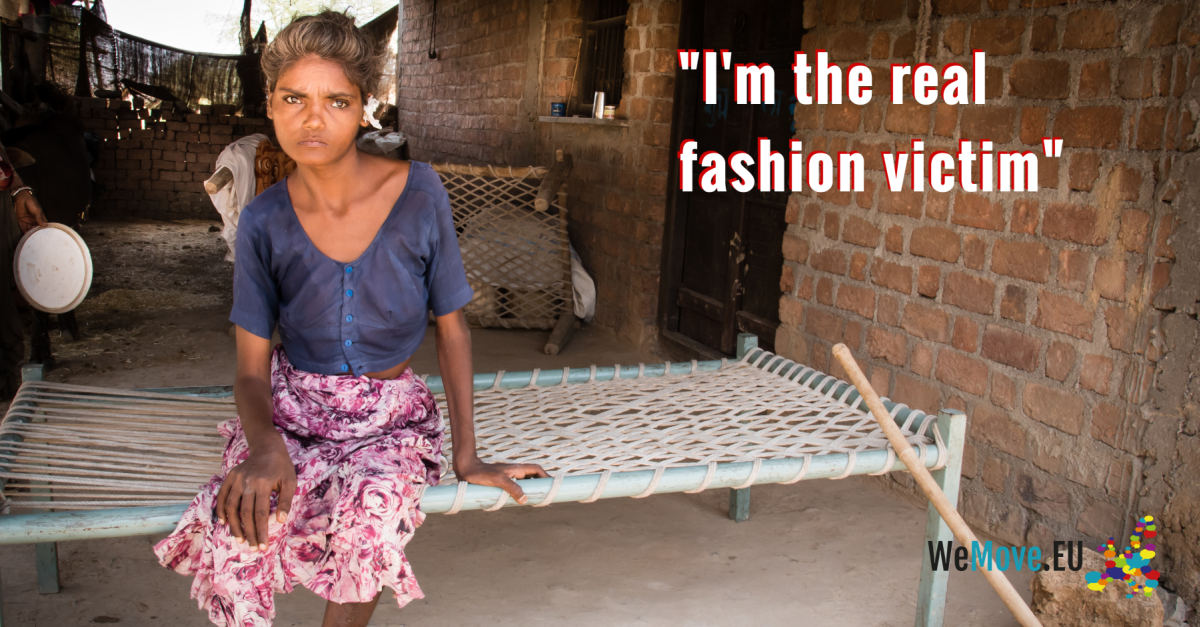WeMove Europe is an independent and values-based organisation that seeks to build people power to transform Europe in the name of our community, future generations and the planet.
To European fashion giants
The clothes you sell have been directly linked to devastating air and water pollution at viscose factories in Asia. As customers across Europe, we demand that you immediately commit to a zero pollution policy and timeline, work with producers to transition to clean technologies, and stop purchasing from producers who fail to comply.
Why is this important?
Viscose, a common textile in the clothes we wear, is often produced using dangerous chemicals that are being dumped in lakes and rivers, and pose a health risk to workers and locals. So the WeMove community mobilised in the hundreds of thousands to demand they clean up their act.
And our outcry worked: recently H&M and Zara promised to do just that! Since then, fashion giants Marks & Spencers, Tesco and ASOS have also publicly committed to sourcing a key fabric, viscose, exclusively from factories that don’t dump toxic water into rivers and streams. [1]
But big firms like Primark, Mango and Topshop are still either declining to disclose whether they use dirty viscose, or still haven’t committed to stop sourcing it.
Viscose is a plant-based fibre that’s an increasingly popular alternative to cotton or synthetic products. It’s often pitched to consumers as a more “sustainable” option — and it could be. But the viscose European fashion giants are buying is anything but sustainable. It’s the result of a chemical-intensive process with no real environmental controls. That means factories release far more dangerous chemicals and noxious gases than recommended levels.
Investigators who visited Asian factories where viscose is produced knew straight away that something was seriously wrong. [2] These factories could be devastating local environments and communities. At factory after factory, workers and local residents told investigators stories of sick friends and family, undrinkable water, and devastated fisheries. Residents at one factory in China said that they didn’t even dare to feed the dead fish to their pigs due to the levels of contamination. Water quality tests backed these stories up.
It doesn’t have to be this way. Clean production technologies already exist and can be implemented. European fashion giants are some of these factories’ biggest customers. If they demand changes, the factories will have to act.
[1] This is the roadmap they’ve signed up to: http://changingmarkets.org/wp-content/uploads/2018/02/Roadmap_towards_responsible_viscose_and_modal_fibre_manufacturing_2018.pdf
[2] http://changingmarkets.org/wp-content/uploads/2017/06/CHANGING_MARKETS_DIRTY_FASHION_REPORT_SPREAD_WEB.pdf
In partnership with:

Please can you chip in?
The WeMove community is here to stand up against corporate greed that damages the environment and our communities, in Europe and elsewhere. To stay independent, we are very careful about who we accept money from - but impactful campaigns need funding, so we need your help!
Can you donate just a few euros a week to help our community to fight againt devastating local environments and communities?

